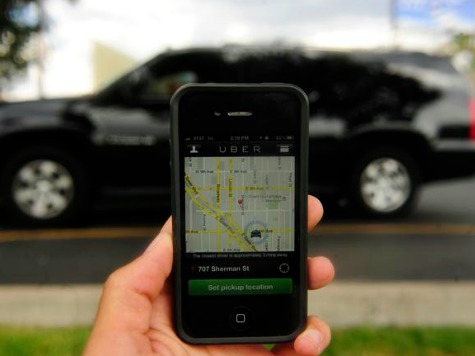The citizen chauffeurs of UberX and Lyft are battling insurance companies, taxicabs and limousines over whether UberX and Lyft drivers should be required to obtain permits from the airports they serve as well as carry $1 million in insurance even when they are not driving, the Sacramento Bee reports.
The chauffeurs typically carry a smartphone app, which logs their location and finds prospective clients in the area, allowing the ride-sharing drivers to avoid simply waiting at airports like taxi drivers. Companies such as UberW and Lyft charge less than normal taxis; a ride from the Sacramento International Airport can run $5 less than the average taxi fare.
The California legislature and the California Public Utilities Commission (PUC) are jointly championing proposals that would target the ride-sharing companies; last year the PUC started to refer to ride-sharing companies such as UberX and Lyft as “transportation network companies,” or TNCs. Last week, the PUC sent letters to five ride-sharing companies, Lyft, SideCar, Summons, UberX and Wingz, that warned them against servicing airports without a permit, and said they had until June 24 to get them.
Assembly Bill 2293, sponsored by Assemblywoman Susan Bonilla, D-Concord is designed to make the PUC’s proposals into law; the bill has already been approved by the Senate Energy, Utilities and Communications Committee.
Robert Callahan, California executive director of The Internet Association, which represents Lyft and Uber, told the Bee that the new rules are unfair: “The sharing economy and those who are disrupting established business models are definitely drawing the ire of traditional special interest groups, in this case in the transportation sector.”
UberX and Lyft have agreed they will continue attempting to obtain permits. The insurance issue is trickier; the new companies agree that the time they are driving they should be covered by the $1 million in insurance, but argue that when their drivers are leaving the app on but not actually driving, they should not need more than their current $100,000 in coverage in addition to the driver’s personal insurance policy, the Bee notes.

COMMENTS
Please let us know if you're having issues with commenting.